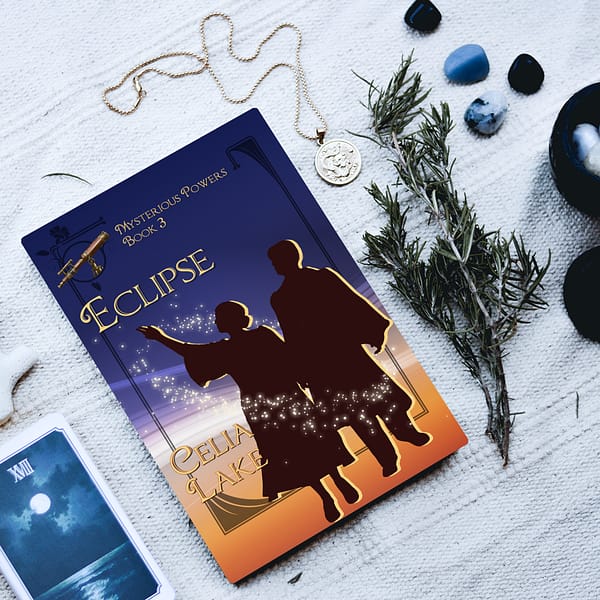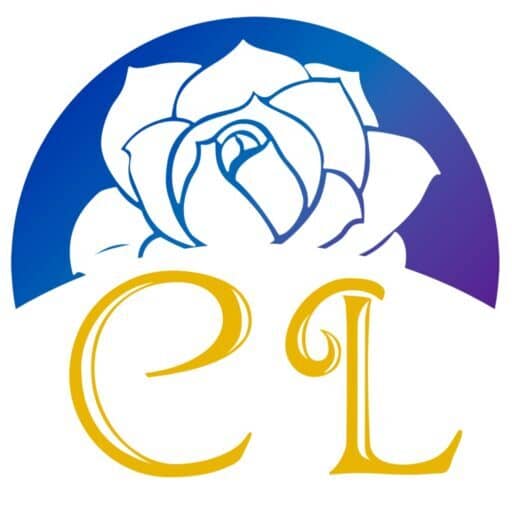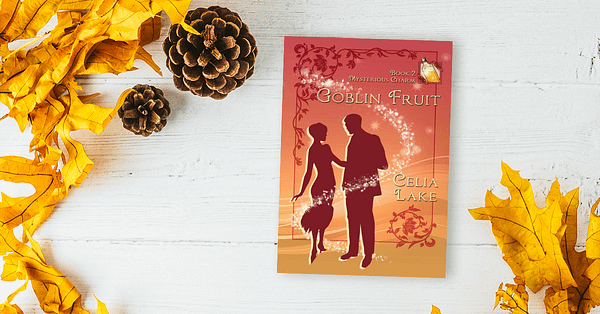I love all my books – and all my point of view characters – but Thesan and Eclipse are particularly near and dear my heart. (I love Isembard too, mind you.) This staffroom romance at a magical school has a special place in the series, too.

Education and the foundations of Eclipse
I grew up in the US, but with British parents. Every year, my father would go off to spend a week or so in England – for research, to see shows in the West End (he was a theatre professor), and to see friends. He’d come back with his suitcase half full of books, many of them for me.
School stories
There’s a whole glorious literature of children’s school stories in British children’s lit. The ones I grew up on were mostly Enid Blyton’s St. Clare’s and Malory Towers books, and the Chalet School books (there are many, and the first half or so are set in a school in the Austrian Tyrol, but run on a British girls school model, before it moves due to the Second World War.)
But there are many many other books of that type and certainly many references to the boarding school experience. The houses, the rivalries between them (even when you’re put in them in purely pragmatic ways), and the many things that students get up to when they’re not right under a teacher’s nose (and sometimes when they are) were all part of the tapestry for me.
My own education and work
A little later in my life, I spent the last two years of high school at a private boarding school (in the US sense). There were a lot of things I loved about it, like many of my classes, the music, the various events and performances on campus. And there were many things I found incredibly challenging, both in terms of an immense and intellectual demanding workload and on a social level. We had massive amounts of homework (5 to 6 hours a night), everyone felt like they were under a lot of pressure to excel. And the social dynamics could be hellish if things weren’t going your way.
And then I spent a decade working in a private day school in Minnesota. Much less of the strong identification based on which dorm you lived in, but it gave me a look at that environment from a teacher – or in my case, librarian’s – point of view. I got to sit in on a lot of conversations about how you balance a range of classes, both in any given year and across a given student’s time in the school. I heard a lot about which kids seemed to have it all, but were really struggling, and which were blooming with a bit of support. More on this in a minute.
Eclipse’s antecedent
From 2007 to 2015 (before the more recent revelations), I was part of a long running Harry Potter alternate universe project, startign very much as a dystopia and moving toward a more hopeful end. It played out in online journals with (for the last three years of the project), the same 12 people writing and plotting across about 90 characters. It taught me a tremendous amount about how to write across a span of time and a wide range of characters, and it also posed a number of questions around worldbuilding.
Among other things, how on earth the Hogwarts class schedules work with the stated number of teachers without manipulating time.
Starting with some basics of time and space
There’s a reason that when I started thinking about this writing idea I had, the first two things I did was to figure out some baselines for demographics (how many people total in Albion, then broken down by ages and education). And then I did a class schedule for Schola. Which admittedly works somewhat more on a “do a bunch of work on your own and your teacher gives feedback” model than US (or modern UK) systems, but is functional.
Character dynamics in Eclipse
Thesan in particular is very much a result of that project, as was my wanting to play with the dynamics that come out in Isembard and Alexander. Most of all, I found myself wanting to spend more time looking at what it meant to set up a magical school that made pedagogical sense to me, that made sense in terms of historical development of the teaching of magic, and that had biases and preferences, but on a more complex level.
The implications of the houses and subjects
Alchemy and Ritual magic are the two most respected magical specialities (along with the various magics that go into duelling, for those that like that sort of thing). But almost no class exists in a void: you need Time and Place (the advanced astronomy class focusing on locational and chronological magics) to manage some kinds of advanced ritual preparation and planning, for example, or certain alchemical potions and mixtures.
Similarly, I have a lot of thoughts about what it means to have houses that are based on magic, and what the different house magics might affect. We’ve seen some of these discussed briefly, but there will be more coming in the 1946-1947 school story that’s the last book in the Land Mysteries series, where our protagonists are in four different houses (Bear, Fox, Horse, and Salmon), and we’ll get to see more of the different implications of the house magics.
In general terms, Fox, obviously, is the socially preferred house, but the others all have their proponents and for good reasons.
Astronomy and magic
This brings us more or less tidly to astronomy. For many many centuries, astronomy – the observation and analysis of the movement of stars and planets – was closely woven with astrology, which ranged from calendrical systems around which rituals were based to magical implications, to divinatory. If all you know of astrology is personality focused, there’s a lot more forms of astrology out there!
In Albion, what Thesan teaches is on the more scientific end of the scale, in the sense of “Can we reproduce this effect?” Various alignments of the stars (as seen from our particular spot in the universe, as she points out), have some impact on different kinds of magic. Using these techniques to time a ritual, expose materia to particular conditions, or make relationships between time and space can all be powerful tools.
The Quadrivium
Astronomy is also one of the four pillars of the quadrivium, a set of sciences that drive the world and help us make sense of it. I couldn’t use this in the book, but there’s a modern description of them that talks about them as pure numbers (arithmetic), numbers in space (geometry), numbers in time (music), and numbers in time and space (astronomy).
Every student at Schola takes Trivium (the arts of rhetoric, composition, and generally being able to use your words well), and then can take one to all four of the Quadrivium classes. All first years also have a class session every day where the Quadrivium teachers teach the basics of their particular fields (emphasis on what you need to know for other magical skills), so everyone gets at least some broad exposure.
And as Thesan points out, astronomy has a lot of other implications for how you look at the world, about seeing what’s there by what you can’t see and how it affects things.
The complexities of being a teacher
Finally, but by no means least, I really wanted to write about the complexities of being a teacher, and trying to be a good one. Like I said above, I worked at an independent high school for twelve years. The last eighteen months or so, I was the teacher librarian, and so had a homeroom, advising duties, and so on as well as being a librarian.
More than you can see: Eclipse’s large cast
The thing I’d already known – but I learned even faster – was that there’s always dozens of things going on in a school that you only know about tangentially. No matter how good a teacher you are, you cannot keep up with the individual private lives of even a couple of dozen students, never mind several hundred. (The school I worked at was about 400 in grades 9-12, so larger class size than Schola, but not that many more students.)
There were some kids I got to know really well, and still miss (and sometimes wonder about) and those conversations were pretty wide ranging. What they were up to in the arts, in sports, in their classes, what they were considering for college. There are a bunch where I had very specific kinds of conversations with them – they’d check in on the daily trivia question in the library, for example. Or where I knew they liked these books a lot. But I often didn’t know a lot about their classes, their sports. Sometimes I’d pick up bits and pieces sitting with other teachers at lunch time.
But there were also plenty of kids where I maybe knew their name and that was about it. For whatever reason, we hadn’t connected on something specific, they weren’t the ones who hung out in the library whenever possible, they had other places to be.
What that means as a teacher
Sometimes the kids I knew needed a lot more time and attention – the chaos of a friend breakup meant they needed somewhere quiet to figure out what to do next. Or they were stressed, and needed somewhere to hang out that wasn’t associated with grades directly. Or where I’d look the other way if they listened to music with headphones on.
(I still have the librarian death glare that can shut up people being too noisy at twenty feet or better, but I also believe strongly that if you’re in a library minding your own business, you should get to listen to music on headphones if you want to. Or read what you want to, even if it’s not what you ‘should’ be reading.)
And sometimes I knew something was up with them, but I wasn’t the right person to help (or to help more than tracking down someone they knew and trusted a lot more).
Thesan and Isembard
Thesan and Isembard are right there in that mess during Eclipse. There are some students both of them know fairly well, and more where one or the other knows them, but not both. There are also just plain a lot of students! Thesan has some advantage, because she’s one of the only teachers (the other three Quadrivium teachers are the others) who actually teaches everyone in an academic course, however briefly.
We have more to come of Schola in 1946-1947. That’s the school story, and one of the student protagonists and point of view characters in that is Leo, Thesan and Isembard’s son and younger child, who has lived his whole life at Schola. I’m very much looking forward to sharing more of that in due course! It’ll be out in May of 2024.
Curious? Eclipse has all this, and quite a lot more! If you want more about Schola (and Thesan and Isembard), Chasing Legends (found in Winter’s Charms) takes place on their first anniversary. There’s also an extra, With All Due Speed, available via my newsletter, that covers their engagement and wedding. Later on, they appear in Best Foot Forward, and there’s more of both of them to come in the Land Mysteries series.

